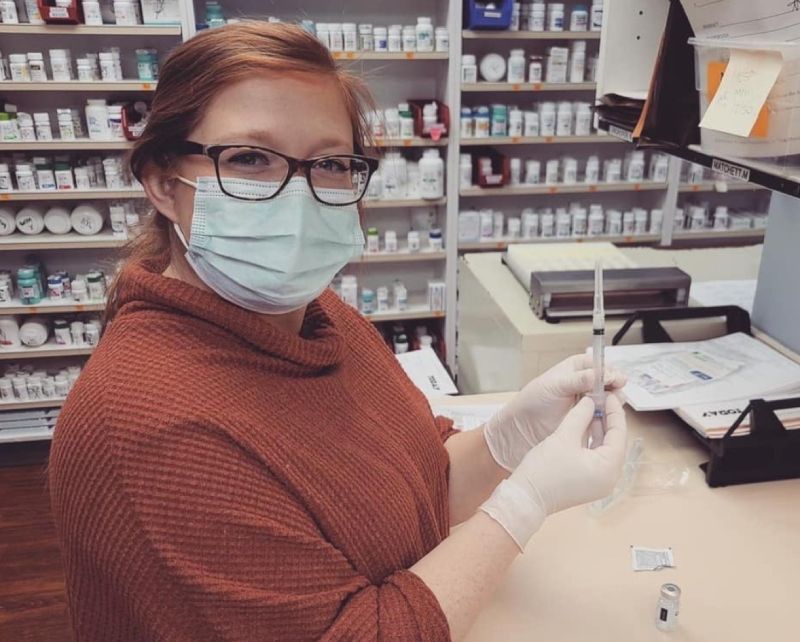PA School Requirements: Essential Guide for Future Applicants
From academic qualifications to clinical experience, each component of a physician assistant (PA) school application plays a part in showcasing your readiness for the road ahead. And knowing what to expect can make the difference between a strong, well-prepared application and one that falls short.
In this guide, we’ll take a closer look at PA school requirements, including — but not limited to — the degrees, prerequisites, test scores, and healthcare experience you’ll need to be accepted. Whether you’re just beginning your journey or are in the middle of applying, understanding these requirements will help you build a strong application and impress admissions officers.
Let’s get started.
PA School Application Requirements
Degree Requirements for PA School
While PA schools require that applicants earn at least a bachelor’s degree, there’s a lot of flexibility when it comes to your chosen field of study. Unlike pre-med programs that strongly encourage students to choose science-focused majors, PA programs are typically open to a variety of educational backgrounds — provided you fulfill certain prerequisites. However, even with the freedom to choose your concentration carte blanche, it’s still important to be strategic in your decision making.
Choose a Medical-Adjacent Major
Selecting a medical or science-related major — though not a requirement — can provide a strong foundation in the subjects commonly required for and covered in PA school. Fields such as biology, health sciences, or kinesiology align well with prerequisites and can also prepare you for the curriculum you’ll encounter down the road.
Pick a Concentration That Interests You
GPA is a central component of PA school applications, and one of the best ways to keep it high is by choosing a major that genuinely interests you — no matter the field. A strong GPA can help set your application apart, so it’s wise to select a subject that will keep you engaged and motivated.
Keep PA School Prerequisites in Mind
While you have flexibility in terms of which major to pick, PA programs do have strict requirements for certain prerequisite courses (more on these shortly). Make sure that you’re aware of the specific prerequisites required by your target PA programs early on so you can incorporate them into your schedule or even select a major with overlapping coursework.
PA School Prerequisite Courses
Even though every PA program sets its own course requirements, certain classes are almost universally required for admission. Completing these prerequisites before applying isn’t only a must, it ensures that you’ll have a solid foundation for success in PA school.
These are some of the most commonly required courses:
- Chemistry (General, Organic, and/or Biochemistry): Foundational for understanding medication interactions and bodily processes
- Biology: Introduces students to key biological principles, and may also be a prerequisite for more advanced classes like microbiology or genetics
- Microbiology: Covers the study of bacteria, viruses, fungi, and other microorganisms and provides a basis for understanding infection processes and pathogens
- Anatomy and Physiology: Provides in-depth knowledge about the structure of the human body and how it functions
- Genetics: Offers insights into hereditary conditions and the mechanisms of genetic diseases
- English: Helps strengthen reading comprehension, writing clarity, and overall communication abilities, which are crucial for patient interactions and documentation
- Math (Calculus or Statistics): Builds proficiency in data interpretation, a skill that’s valuable when assessing clinical studies or making data-based decisions
- Physics: Useful for understanding certain aspects of medical technology, biomechanics, and other topics relevant to patient care
- Psychology: Provides insight into patient behavior and mental health
Some PA programs may also require coursework in the humanities, which can include subjects such as ethics, sociology, or philosophy. These courses provide perspective on human experiences, social contexts, and ethical considerations, all of which will have applications in your future healthcare career and contribute to a well-rounded PA education.
PA School GPA Requirements
Your GPA demonstrates your potential for academic achievement. Most PA programs have a minimum GPA requirement, but just meeting the baseline isn’t always enough. Understanding how GPA requirements work can help you set the right goals and put your best foot forward.
Minimum GPA Requirements
For most PA programs, the baseline GPA requirement for acceptance is around 3.0, although some programs may set this threshold slightly higher or lower. The minimum GPA serves as a starting point, meaning that meeting it simply qualifies you for consideration. Given the competitive nature of PA programs, it’s a good idea to aim for a higher number.
Understanding GPA Types
PA schools often look beyond your overall GPA, focusing on specific GPAs for a more complete picture of your proficiency in relevant coursework:
- Science GPA: This includes all science-related courses you’ve taken and indicates your ability to comprehend scientific material and concepts.
- Non-Science GPA: Programs may also look at your performance in non-science courses to gauge how academically well-rounded you are.
- Biology, Chemistry, Physics (BCP) GPA: This specialized GPA focuses on the core sciences that are directly related to PA studies.
Research Average GPAs for Accepted Students
To get the most accurate picture of the GPA you should aim for, consider looking at the average GPAs of students who were previously accepted into the programs you’re interested in. Some PA schools publish these statistics on their websites, giving you insight into the competitive range. More generally speaking, the PA Education Association (PAEA) reports that the average GPA for incoming first-year PA students is a 3.6.
GRE Requirements for PA School
While not all PA schools require applicants to submit GRE scores, those that do rely on the test to gauge candidates’ academic potential. Here’s what you need to know about GRE requirements and strategies for achieving a competitive score.
- GRE Score Expectations: In general, a GRE score above the 50th percentile (or a combined score of over 300) is considered competitive for PA programs that require it. However, it’s always a good idea to check specific score requirements for each program you apply to, as expectations vary.
- Multiple Attempts and Score Submission: If need be, you’re able to take the exam up to 5 times within a 12-month period. Additionally, you can choose which scores you want to send to PA schools, meaning that admissions officers will only see your best scores.
- Average GRE Score for Accepted Students: According to the PAEA, the average GRE score for accepted PA students is 309.5. This provides a general benchmark to aim for, but remember that GRE scores are only one aspect of your application.
- Preparing for the Exam: To get a top GRE score, you’ll need to dedicate time to studying and practice. Consider creating a study schedule, taking advantage of test prep resources, and taking practice exams to familiarize yourself with the format and identify areas for improvement.
Healthcare Experience Requirements for PA School
Clinical experience is one of the most important parts of your PA school application. Most programs require applicants to have completed a specific number of hours working in healthcare settings in order to be considered for admission. While the exact number of hours varies by school (requirements generally fall within the 1,000–2,000+ hour range), hands-on experience is universally valued, since it demonstrates that applicants have a practical understanding of the medical field and patient care.
How you spend this time will fall into two main buckets:
- Patient Care Experience (PCE): This type of experience involves direct, hands-on contact with patients and is highly valued by PA programs — so much so that these hours will count for most, if not all, of the required total. Examples include roles such as medical assistant, EMT, EKG technician, or nursing assistant. Patient care experience provides an opportunity for you to build your interpersonal skills, understand patient needs, and gain confidence in a clinical setting.
- Healthcare Experience (HCE): Healthcare experience is broader and typically involves roles that support the healthcare system but don’t require providing direct patient care. This includes medical scribing, working in healthcare administration, or roles that involve medical billing or lab work. Though HCE hours may be mostly supplementary to PCE, this type of experience provides valuable exposure to the inner workings of healthcare facilities and systems.
Ready to start accruing clinical hours? Browse our pre-PA certification programs to take the first step toward landing an entry-level healthcare role >>>
PA School Essay Requirements
The essay, or personal statement, is your chance to show admissions committees who you are beyond your grades and test scores. You’ll have 5,000 words to explain your motivation for pursuing a career as a physician assistant and showcase what makes you a strong candidate for the program.
The key to an impactful statement is to make sure it stands out — here’s how you can help yours do exactly that:
Be Clear About Your Why
Start by explaining why you’re committed to a career in medicine, and specifically, as a PA. The focus should be personal and compelling, showing readers your motivation and dedication to the field. Whether it’s a specific experience that sparked your passion or a calling you’ve felt for years, admissions committees want to understand why you’re driven to become a PA.
Draw From Personal Experiences
One of the most effective ways to make your essay stand out is by drawing inspiration from your personal experiences. These stories can highlight lessons you’ve learned or pivotal moments that directed your path toward PA school. Reflecting on real, meaningful experiences helps you create a narrative that is authentic, memorable, and unique to you.
Tell a Story
Simply listing out the reasons why you’re interested in the PA profession won’t get you very far. Instead, weave them into a story that flows naturally and holds the reader’s interest. For example, think of a moment when you felt especially connected to the work or witnessed the difference PAs make in patients’ lives. Storytelling also gives your essay structure, making it more engaging and relatable.
Avoid Generalizations
Admissions committees read hundreds of personal statements every year, so try to stay away from generic, overused themes like “helping people” or “making a difference.” Instead, focus on what makes your perspective unique. Be specific, stay true to yourself, and focus on details that reveal your character and motivations.
Craft a Strong Introduction & Conclusion
A powerful introduction sets the tone for the rest of your statement, while a memorable conclusion ties your story together and makes a lasting impression. Aim for an opening that captures the reader’s attention right away, and close with a thought or insight that stays with them.
Stay True to Your Voice, but Keep It Formal
Above all, the personal statement is your story to tell, so it should reflect your voice and personality. However, remember that this is still a formal piece of writing. Maintain professionalism in tone and language throughout, while simultaneously giving your passion and character a chance to shine.
Letter of Recommendation Requirements for PA School
Letters of recommendation (anywhere from 3–5 are typically required) offer admissions committees valuable insights into your skills, work ethic, and suitability for the profession from an outside perspective. To ensure that these letters represent you in the best way possible, it’s best to:
Choose References Wisely
When it comes to the quality of your recommendations, selecting the appropriate people to write them can make all the difference. Ideally, you’ll choose individuals who know you well and have seen your work firsthand in a healthcare setting. These could be supervisors, physicians, or practicing PAs who can speak directly to your skills and professionalism. Some PA programs may also request a recommendation from a professor, so be sure to check the specific requirements for each school.
Ask Early & Ensure Willingness
When approaching potential recommenders, never assume that they’ll say yes to your request — always ask if they feel comfortable writing a letter for you first. Begin asking the people you’ve identified as good candidates well before the application deadline. This not only gives them time to write a thoughtful recommendation if they agree to help, it also gives you the ability to pivot in a different direction if anyone declines.
Set Your Recommenders Up for Success
Help your recommenders help you by providing them with relevant details about your achievements, experiences, and goals for PA school. Share your resume, a list of the programs you’re applying to, and any accomplishments you’d like them to highlight in their letter. These details enable your recommenders to write a more thorough and compelling letter that aligns with your application narrative.
PA School Application Requirements
Many PA schools use the Centralized Application Service for Physician Assistants (CASPA) to manage the influx of applications they receive. CASPA streamlines the application process by allowing prospective students to submit a single application that can then be sent to multiple programs. However, some schools may request additional, supplemental application materials beyond what CASPA requires. Always check each program’s specific requirements to ensure that your application is complete.
In addition to completing the CASPA application, here’s a suggested timeline to guide your application preparation:
- 4 Years Before the Application Deadline
- Research Schools: Take a closer look at PA programs to understand their admissions requirements and evaluate potential fit
- Plan Course Requirements: Make a plan to complete any prerequisite courses and meet GPA targets
- Start Building Up Clinical Hours: Begin accruing PCE and HCE hours
- Explore Other Healthcare Activities: Look into opportunities for shadowing, volunteering, and work experiences to build a well-rounded application
- 1 Year Before the Application Deadline
- Complete Clinical Hours and Coursework: Plan to finish any outstanding clinical hours and required courses
- Continue With Healthcare Extracurriculars: Remain involved in healthcare-related activities to demonstrate ongoing commitment
- Take the GRE (If Required): Schedule your GRE exam, and consider retaking it if you need to improve your score
- Choose References: Identify individuals who can provide strong letters of recommendation
- 6 Months Before the Application Deadline
- Request Letters of Recommendation: Approach your chosen references and provide them with the details they’ll need to write your recommendation if they agree
- Begin Writing Your Personal Statement: Start drafting your essay, allowing enough time for revisions
- Continue Gaining Clinical Hours: If you’re close to meeting or exceeding the clinical hour requirements, keep going for additional experience
- 1 Month Before the Application Deadline
- Submit Your Application: Submit your CASPA application and any required supplemental materials
- Order Transcripts: Arrange for official transcripts to be sent to each program and verify receipt
Strengthen your PA school application by completing a pre-health certification course. Browse our self-paced pre-PA programs >>>
FAQs
What are the requirements for PA school?
While exact requirements vary by program, you can expect to need a bachelor’s degree, to fulfill certain coursework prerequisites, achieve a GPA of at…
What GPA do I need to get into PA school?
Most PA programs have a minimum overall GPA requirement of 3.0, though competitive applicants often have higher GPAs.
What is considered a competitive GRE score?
Scores above the 50th percentile (or higher than 300) are typically considered competitive.
How many clinical hours do I need to complete in order to apply for PA school?
Requirements will depend on the program you’re applying to, but most PA schools ask prospective students to have anywhere from 1,000 to 2,000+ hours…
What courses do I need to take before applying to PA school?
Common prerequisite courses include general biology, chemistry, organic chemistry, biochemistry, anatomy and physiology, microbiology, genetics, psychology, physics, statistics or calculus, and English.
If I’m planning to go to PA school, what should my major be?
PA programs do not require applicants to major in a specific field, so students can choose any major that interests them.
Ready to Start Your PA School Journey?
There’s a lot to keep track of when navigating PA school requirements — you have to make sure you meet academic and experience standards, submit required documentation, craft a compelling personal statement, and gather glowing letters of recommendation. While it can seem like a daunting task, having a firm understanding of how to meet these requirements can make preparing a strong application much easier.
If you’re looking to make your application even more compelling, earning medical certifications is an excellent way to sharpen your skills. Getting certified in areas such as medical assisting, patient care, or phlebotomy not only deepens your clinical knowledge but also demonstrates your commitment to the medical field.
Each of our self-paced, pre-PA certificate courses are designed to be completed in as little as 8 weeks, putting you on the fast track to enhancing your PA school application. Enroll today to get started.
With so many programs to choose from, it’s crucial to ask the right questions when narrowing down your options.


